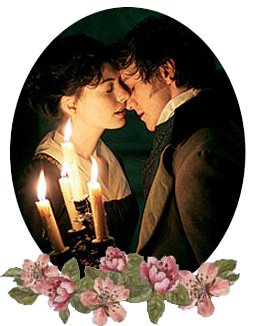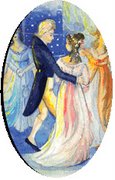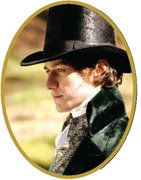Jane Austen Quote of the Week 218
 |
| The full moon tomorrow night is a great way to end 2012 and begin 2013 |
Dear friends,
The year 2012 is finishing soon, only 26 hours to go. We have so many things we experienced in 2012, things we regret and things we are grateful for. Yet, I do believe that despite all the sadness, one thing remains: Hope. And to feel hope, one often have to alter their view of the world, or at least about a subject. Doesn't have to be a radical shift; a small one will do. But having a different perspective is important because we can then see things more objectively. Somehow, gratitude can emerge out of it, along with hope for a better tomorrow.
For this reason, I choose this passage from Pride & Prejudice Chapter 50. What Lizzy Bennet had here captured what I meant by shifting our perception from a smaller view to a larger one.
[Elizabeth] began now to comprehend that he was exactly the man who, in disposition and talents, would most suit her. His understanding and temper, though unlike her own, would have answered all her wishes. It was an union that must have been to the advantage of both; by her ease and liveliness, his mind might have been softened, his manners improved, and from his judgment, information, and knowledge of the world, she must have received benefit of greater importance.You see, to me a change of perception does not have to be big. A small change of perception will do, as long as it brings us closer to peace, understanding and liberation.
FYI, I have actually posted this quote before in 2008. However, four years have passed already (wow, that soon?!), and thus I think a reiteration of this quote is forgivable.
Happy New Year everyone! May 2013 brings us more happiness, health, prosperity and peace for all of us, for all living beings on Earth.
By the way, the full moon tomorrow night (31 Dec 2012) is a great way of ending one chapter and opening a new one. Be ready for beautiful things to happen! We don't know what's around the corner, so keep opening and being receptive. Blessings and love for all of you.

























































